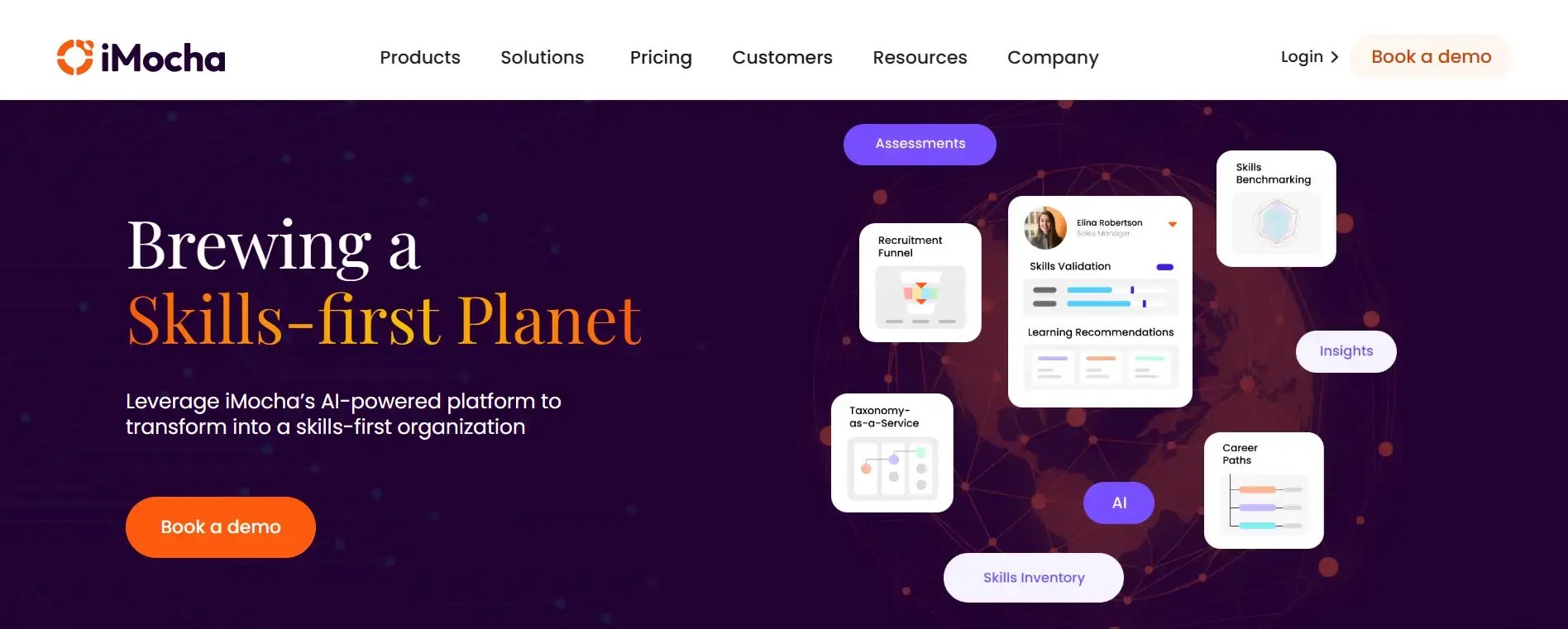Managing workforce skills is essential, yet many organizations still rely on spreadsheets and disconnected systems to track employee competencies. This outdated approach leads to missed opportunities, misaligned projects, and disengaged employees.
The Solution: Skills tracking software centralizes skills data, enabling organizations to identify, assess, and monitor employee competencies in real-time. These platforms help companies close skill gaps, align talent with business goals, and drive productivity.
Why It Matters in 2025: With 87% of organizations facing skill gaps (McKinsey Global Institute), effective skills tracking is more critical than ever. The right software empowers businesses to make data-driven decisions, prioritize upskilling and reskilling, and stay competitive in a rapidly evolving job market.
Below is our curated list of the top 12 skills tracking software in 2025.
|
Table of contents |
Top 12 Skills Tracking Software
Enabling a skills-first vision, iMocha is an AI-powered Skills Intelligence Cloud. Its platform offers comprehensive skills tracking, robust taxonomy, and multi-channel validation, making it a leader in workforce development.
Key Features:
- AI-Powered Skills Taxonomy: Ontology-based mapping ensures accurate skills identification and tracking.
- Skills Validation: Validate skills through assessments, simulations, and certifications.
- Skills Inventory: Maintain a dynamic skills database that evolves with your workforce.
- Skill Level Identification: Identify employees’ proficiency levels and tailor upskilling initiatives.
- Skills Benchmarking: Compare workforce competencies against industry standards for strategic planning.
Founding Year: 2015
G2 Rating: 4.4/5 (265 Reviews)
Pricing: Check out iMocha pricing here
|
Boost employee morale and productivity with iMocha's skills tracking platform. |
2. Runn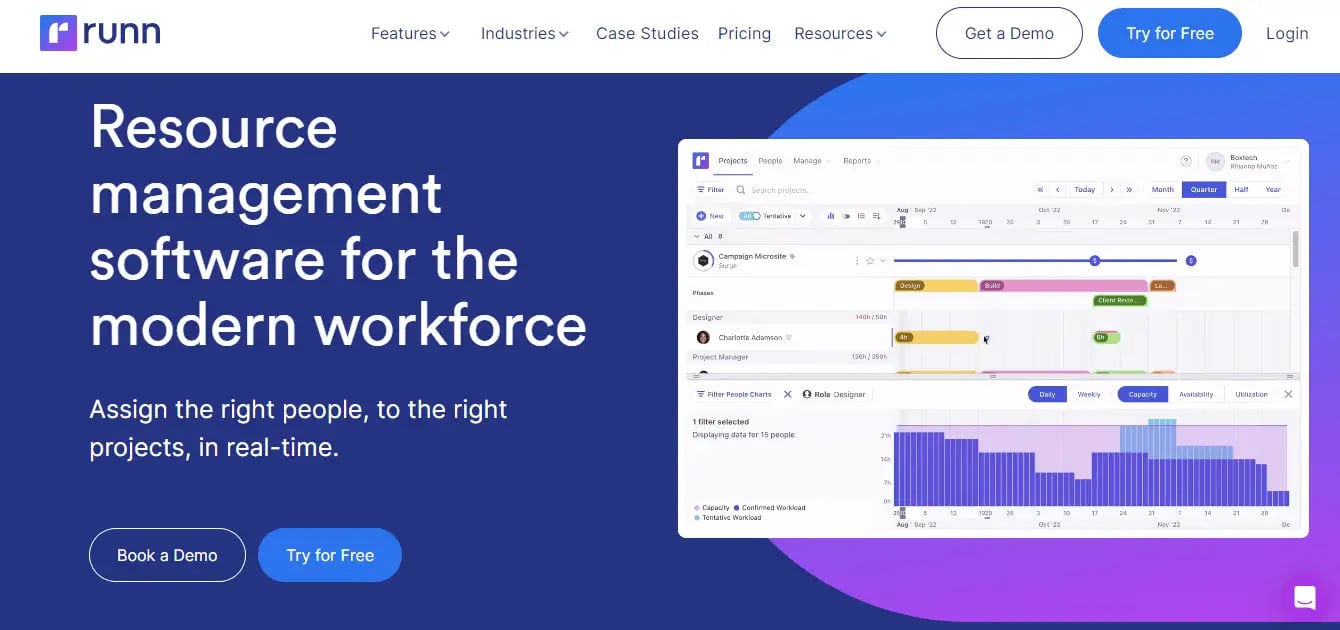
Runn is a resource management software that helps companies across multiple industries with resource scheduling, capacity management, project planning, and forecasting. Here are some key features of the software:
- Resource Scheduling: Runn streamlines resource management by letting you visually plan and track projects. This ensures everyone's on the same page and avoids overbooking, resulting in a more efficient workflow.
- Project Planning: It simplifies project planning with drag-and-drop scheduling, allowing you to visualize project timelines and resource allocation quickly.
- Capacity Management: Gain real-time insights into your team's workload with Runn's capacity management tools. This helps avoid overbooking and ensures optimal resource utilization.
- Project Forecasting: It uses data from your plans and timesheets to generate forecasts for project timelines and budgets, empowering proactive decision-making.
- Timesheets: The platform offers user-friendly timesheets that integrate seamlessly with project plans. This simplifies time tracking and ensures accurate data for reporting and forecasting.
- Reporting: It provides comprehensive reports with heatmaps and visualizations that offer valuable insights into project progress, resource utilization, and team performance.
Founding Year: 2018
G2 Rating: 5/5 (1 Review)
3. Skills Base
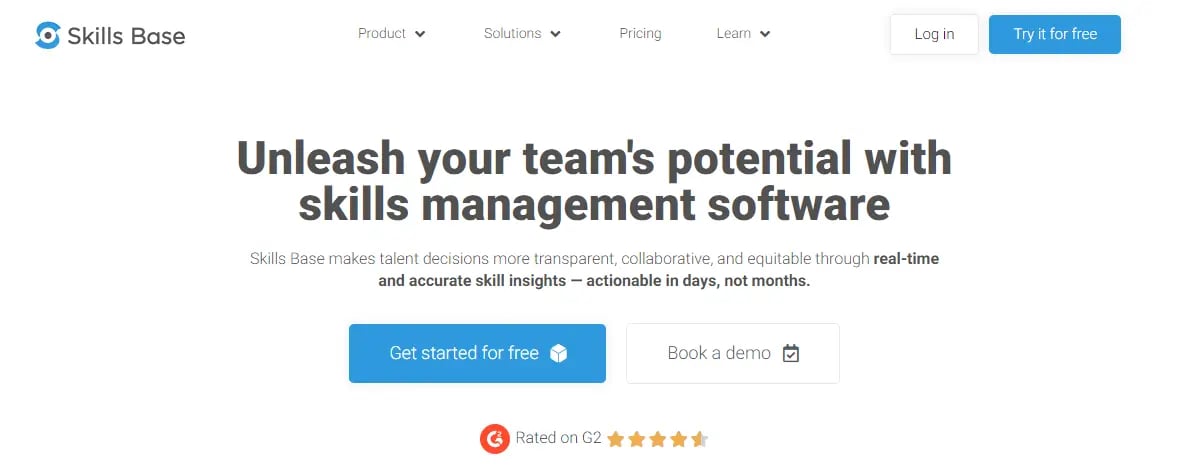 Skills Base is a cloud-based skills management platform that helps organizations with their real-time skills intelligence, visualize skills strengths, close skills gaps, and realize the team’s potential. Below are some key features of the platform:
Skills Base is a cloud-based skills management platform that helps organizations with their real-time skills intelligence, visualize skills strengths, close skills gaps, and realize the team’s potential. Below are some key features of the platform:
- Skills Audit: Utilize Skills Base to do an organization-wide analysis of development needs and close skills gaps. Analyze and validate skills with Intuitive self-assessments, supervised assessments, and reporting.
- Skills Inventory: The platform lets you create a digital skills library. It consists of comprehensive skills data of your organization that evolves over time with your organization.
- Skills Matrix: You can leverage the platform to turn your manual skills data into a competency skills matrix to inform your business decisions.
Founding Year: 2018
G2 Rating: 4.6/5 (18 Reviews)
|
Manual employee skills data tracking is error-prone. Ditch the spreadsheets and supercharge your skills tracking with iMocha Skills Intelligence. |
4. EmployPlan
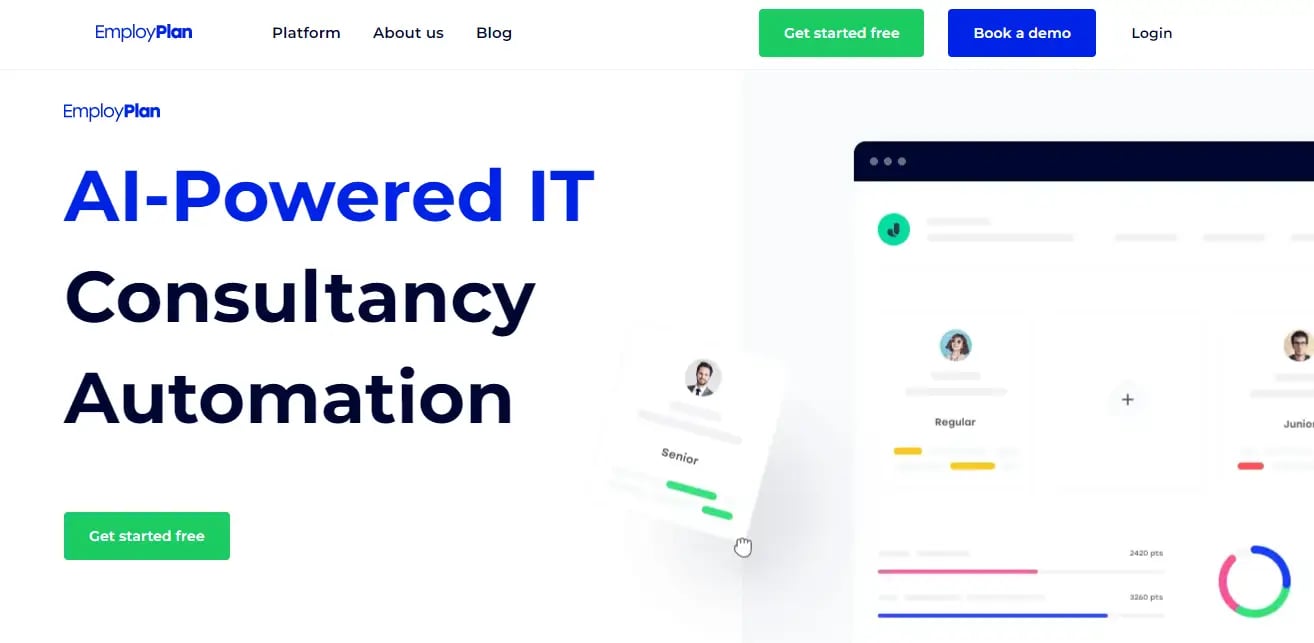 EmployPlan is an AI-powered consultancy automation platform. It helps companies track and manage employees’ skills and create personalized development plans that align with their business needs. Here are some key features of the platform:
EmployPlan is an AI-powered consultancy automation platform. It helps companies track and manage employees’ skills and create personalized development plans that align with their business needs. Here are some key features of the platform:
- Track Employee Growth: EmployPlan allows you to map the team’s professional development, recognize skills gaps, and create learning plans.
- Employ Insights: The platform also helps you identify and analyze the workforce’s skills, rank employee skills, and optimize resource distribution.
- Skill Matching: View employee availability, identify the best fit for the job, and optimize allocations with EmployPlan.
Founding Year: 2019
G2 Rating: NA
5. Kahuna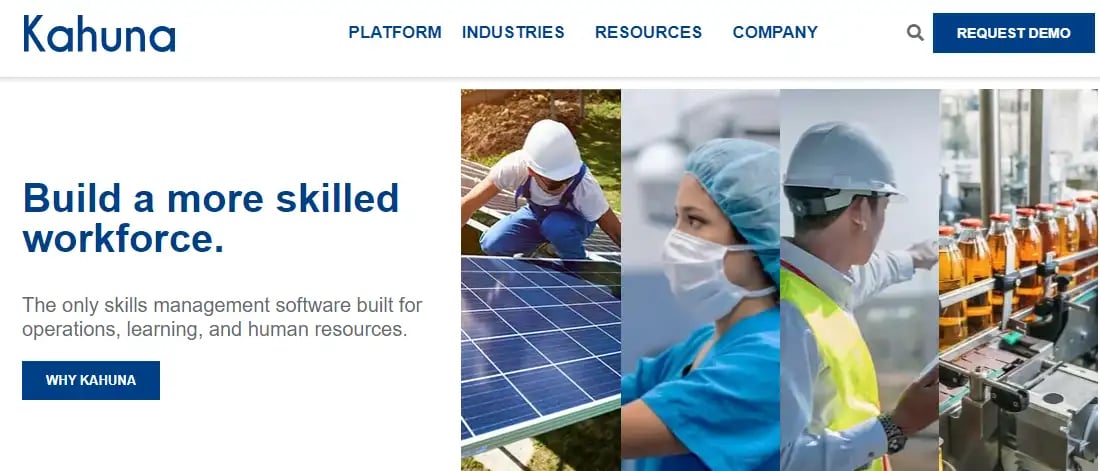
Kahuna is a skills and competency management software for operations, learning, and human resources. It aims to bridge the gap between these three areas. Here are some key features of the platform:
- Employee Dashboard: Kahuna Employee dashboard lets you highlight skills assigned to employees, clarify employee focus areas, and understand skills gaps and related learning resources. It also gives you a detailed view of employee skills proficiency, experience, and certifications with team matrix.
- Assignment Workbench: The platform allows you to display a parent-child taxonomy of skills, competencies, qualifications, and certifications with their Skill Library.
- Talent Finder: It provides you access to all validated skills data, learning, training completions, and experiences tracked in Kahuna.
- Capability Planning: Use skills data to understand the skill deficits and create action and development plans to reskill and close skill gaps accordingly.
Founding Year: 2012
G2 Rating: 4.9/5 (28 Reviews)
6. Cinode
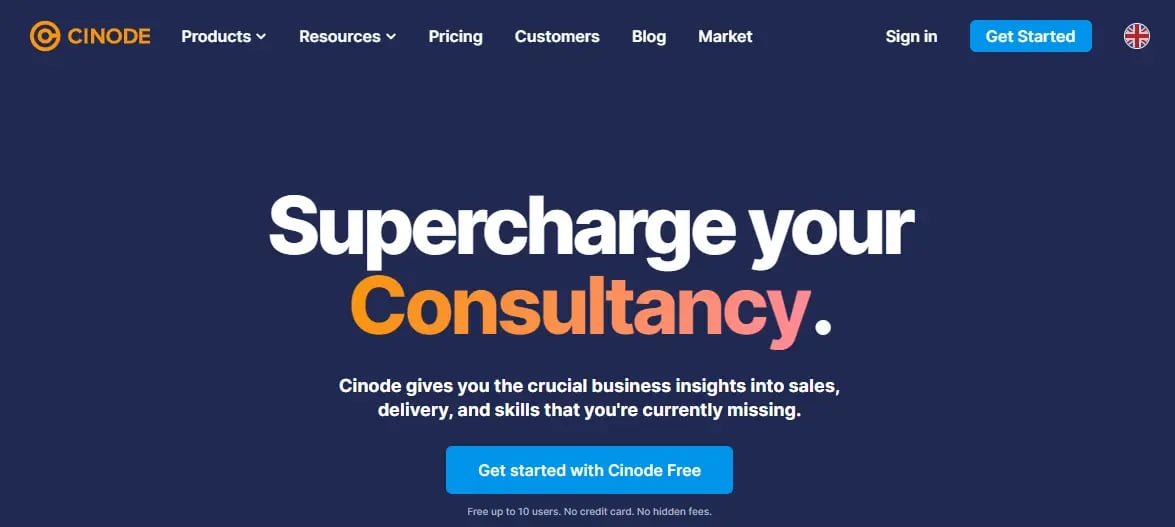 Cinode positions itself as an all-in-one Saas platform that boosts consultancy growth by giving crucial insights into sales, delivery, and skills. Their skills management helps companies by capturing skills and identifying gaps. Let's look at some of the critical features of the platform:
Cinode positions itself as an all-in-one Saas platform that boosts consultancy growth by giving crucial insights into sales, delivery, and skills. Their skills management helps companies by capturing skills and identifying gaps. Let's look at some of the critical features of the platform:
- Skills Inventory: Discover all your skills and streamline sales, procurement, matching, and training with a top-tier skills inventory.
- Skills Visualization: It lets you visualize gaps and gain insights for upskilling, reskilling, recruitment, and partnerships. It also enables you to define the competencies required for your roles.
- Employee Competence and Growth Goals: You can utilize the platform to craft the right development plans for employees' competence and growth goals.
Founding Year: 2010
G2 Rating: 4.9/5 (28 Reviews)
7. AG5 Skills Intelligence
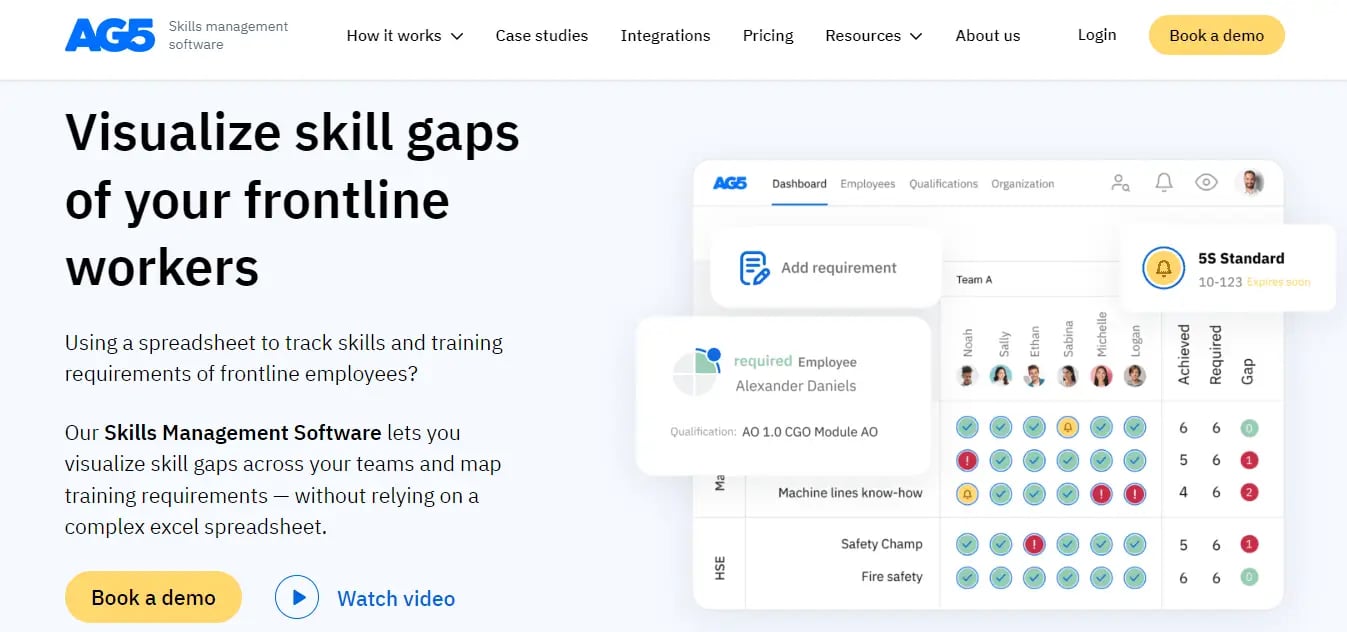 AG5 Skills Management Software helps you ditch manual skills tracking and offers a robust solution to visualize skill gaps across your teams and map training requirements. Here are the top skills-tracking features of the platform:
AG5 Skills Management Software helps you ditch manual skills tracking and offers a robust solution to visualize skill gaps across your teams and map training requirements. Here are the top skills-tracking features of the platform:
- Skills Inventory: AG5 provides you with a single source of truth for skills data with a centralized skills hub.
- Visual Skill Matrices: It also lets you map essential skills across roles, departments, and the entire organization with a clear visual representation.
- Training Plans: The platform lets you create and manage training plans and records to close your skills gaps.
Founding Year: 2019
G2 Rating: 4.7/5 (13 Reviews)
8. Centranum
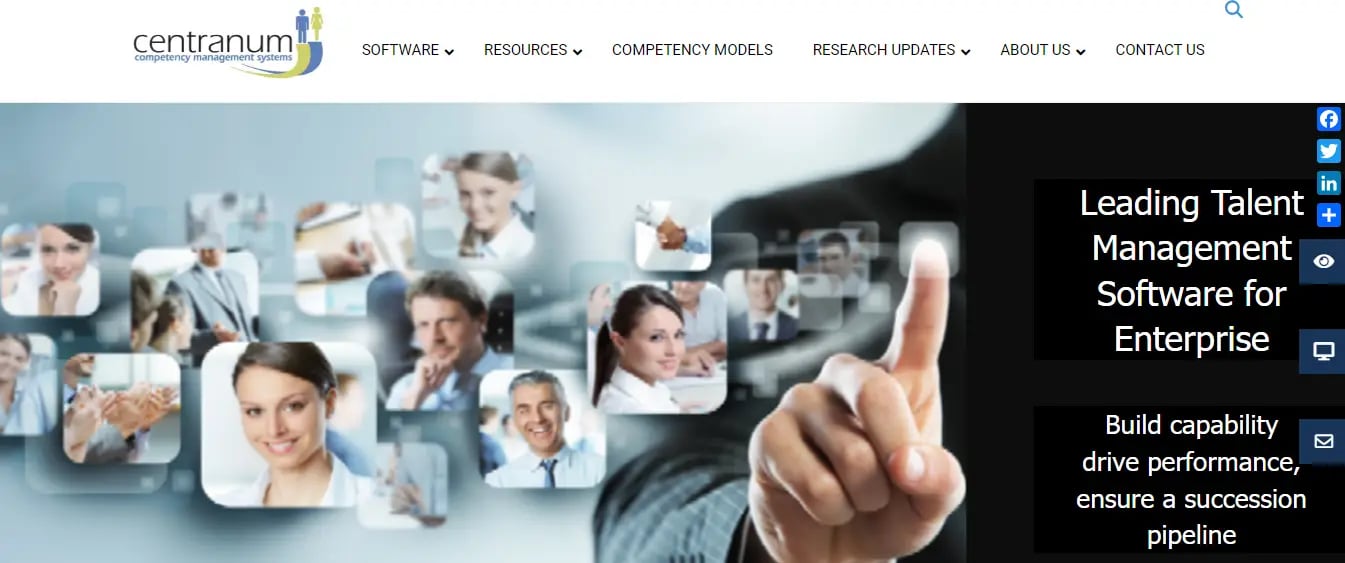 Centranum is a cloud-based talent management platform with a comprehensive skills management software module. Their skills tracking platform helps organizations track, develop, and manage the skills of their workforce.
Centranum is a cloud-based talent management platform with a comprehensive skills management software module. Their skills tracking platform helps organizations track, develop, and manage the skills of their workforce.
- Skills Inventory: Centranum equips you with a single source of truth for information on workforce capability and competency across the organization.
- Individual Capability and Development Tracking: The platform helps you capture rich data on employee competency and capability and matches the right people with the right jobs.
- Employee Development: The platform helps you plan developmental training, close skills gaps, and track progress.
Founding Year: 2001
G2 Rating: NA
9. SkillNet
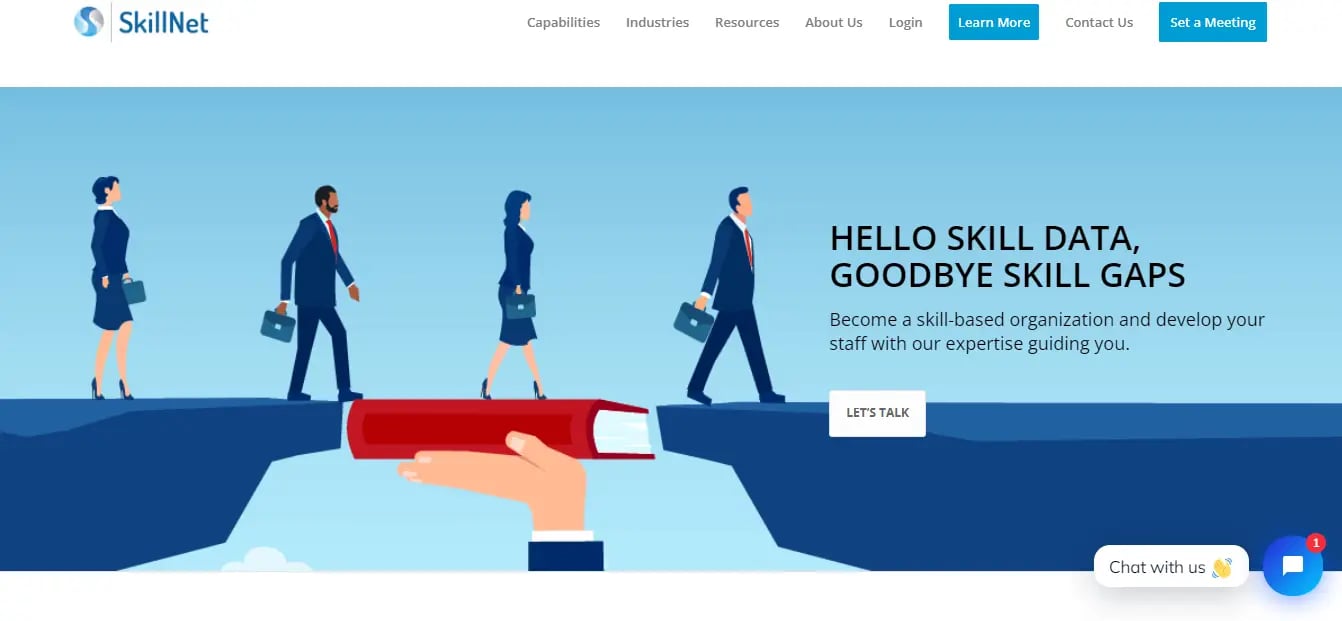 SkillNet is a comprehensive skills management software designed to help organizations streamline their workforce development and training initiatives.
SkillNet is a comprehensive skills management software designed to help organizations streamline their workforce development and training initiatives.
- Skill Measurement: SkillNet helps you create a skills inventory, validate skills, and assign personalized learning resources to close skill gaps.
- Upskilling and Reskilling: It helps you clarify current and future skills so employees know what to expect regarding their professional development.
Founding Year: 2001
G2 Rating: 4.6/5 (14 Reviews)
10. VibyAderant
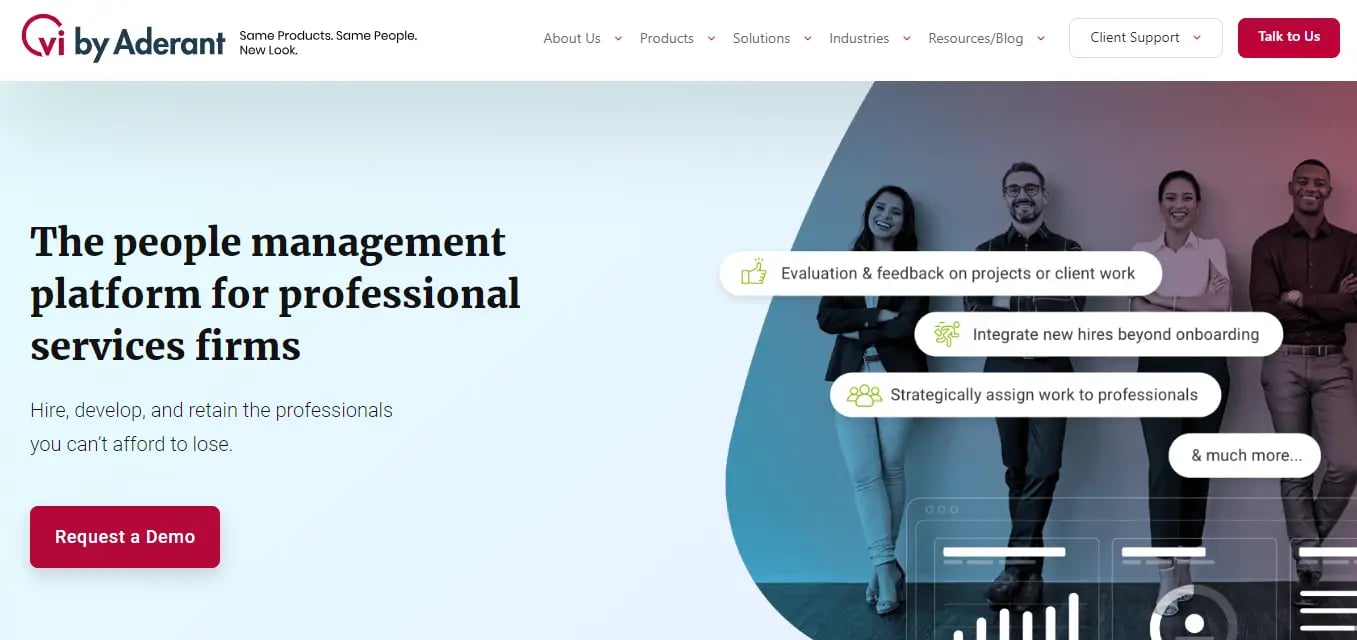 Vi by Aderant is a people management platform built to handle all the nuances of hiring, developing, and managing talent. Their Skills Tracking helps you pinpoint missing skills and work experience. Let’s look at the top features of the platform:
Vi by Aderant is a people management platform built to handle all the nuances of hiring, developing, and managing talent. Their Skills Tracking helps you pinpoint missing skills and work experience. Let’s look at the top features of the platform:
- Skills Taxonomy: VibyAderant helps you create a central repository that shows employees what skills they need to progress. Within taxonomy, skills are organized by competency and career stage (early, mid-level, senior).
- Track Progress: The platform also lets you choose whether developmental progress is tracked by experience or by the number of times employees complete the skill.
- Comprehensive Reporting: The platform provides a bird' s-eye view of organization-wide data, filtered by department, office, or practice group, that helps highlight your workforce's collective skills and experience.
Founding Year: 2001
G2 Rating: 4.6/5 (31 Reviews)
11. Talentguard
![]() Talentguard is a robust skills tracking software designed to empower organizations with clear insights into their workforce's capabilities.
Talentguard is a robust skills tracking software designed to empower organizations with clear insights into their workforce's capabilities.
- Unbiased Skill Verification: Compare self-assessments with manager evaluations to gain objective insights into your workforce's skills. This reduces bias and helps identify areas for alignment, feedback, and development goal setting.
- Personalized Learning Plans: Leverage personalized learning plans based on each employee's strengths, weaknesses, and aspirations aligned with your company's needs.
- Track Skill Development: Your employees can track their progress and document newly acquired skills, enabling them to request feedback from managers and demonstrate skill development towards achieving established goals.
Founding Year: 2009
G2 Rating: 4.7/5 (3 Reviews)
12. SkillsDB
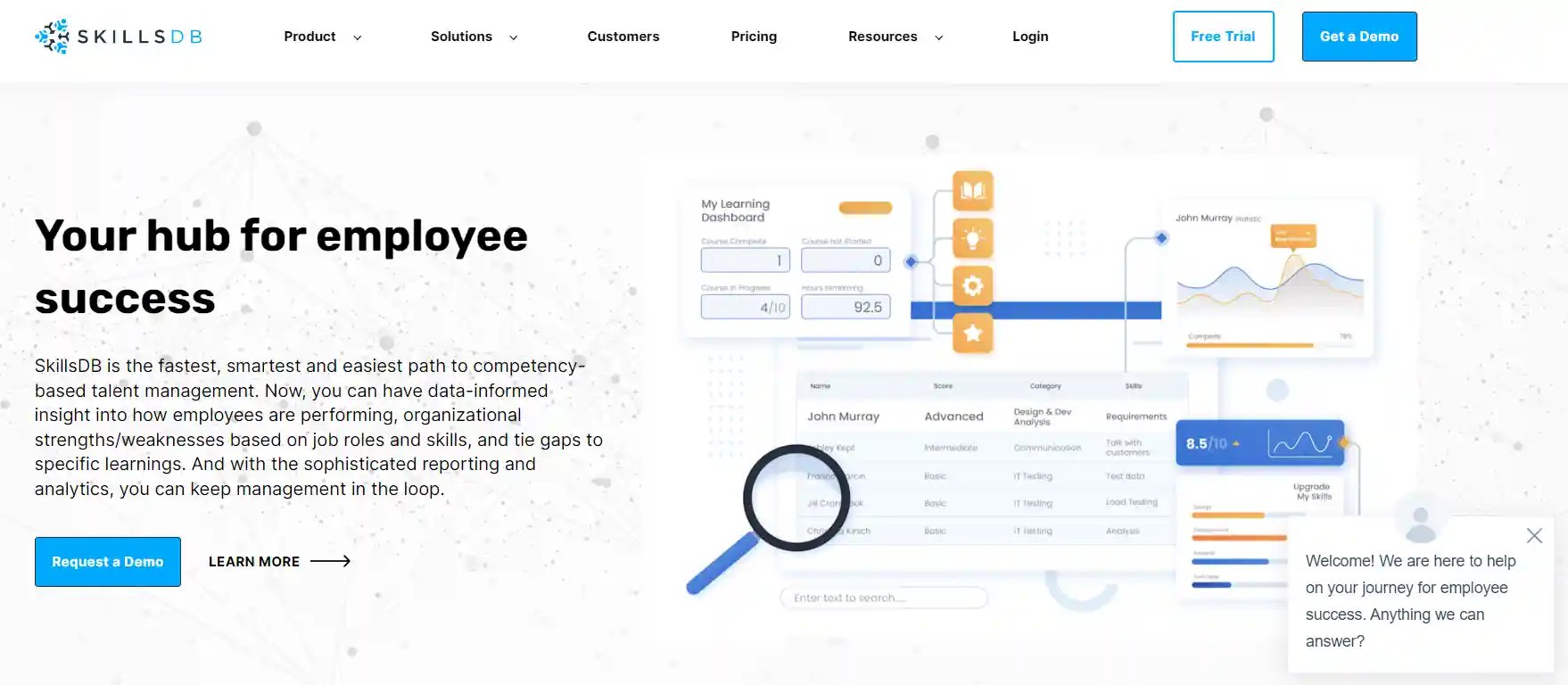 SkillsDB is a cloud-based skills management software designed to help organizations track employee skills, identify skill gaps, and develop their workforce.
SkillsDB is a cloud-based skills management software designed to help organizations track employee skills, identify skill gaps, and develop their workforce.
- Skills Taxonomy: SkillsDB allows you to catalog skills, roles, and competencies to better understand your organization.
- Skills Matrix: Create a skills matrix and gap analyses for a tactical and strategic improvement roadmap with SkillsDB.
- Skill Development: The platform also helps you analyze skill gaps and chart a personalized training plan accordingly.
Founding Year: 2008
Capterra Rating: 4.6/5 (13 Reviews)
|
Ready to future-proof your workforce? Discover how iMocha can help you assess, track, and develop the skills your team needs to thrive. |
Which skills-tracking software is right for you?
Every Skills Tracking Tool mentioned in this list is best in its own right. Some are part of a skills management or intelligence platform, while some are built specifically for skills tracking. Consider your use cases and workforce size before you make your decision.
iMocha goes beyond just tracking - it assesses skills objectively and predicts future needs, ensuring your team is always ready. Plus, it keeps your team engaged and motivated with personalized learning.
FAQs
What is Skills Tracking Software?
Skills tracking software is a digital platform that helps organizations monitor, assess, and manage employee competencies. It provides real-time insights into workforce skills, identifies gaps, and supports targeted training to enhance productivity and performance.
Why do organizations need skills tracking software?
Organizations need skills tracking tool to understand their workforce's strengths and weaknesses. By centralizing skills data, businesses can allocate resources effectively, design personalized development plans, and make informed decisions. This leads to improved productivity, talent retention, and long-term success.
What are the benefits of Skills Tracking Software?
Skills tracking software empowers your workforce by identifying skill gaps, optimizing resource allocation, targeting training, and informing data-driven decisions. These tools unlock benefits like improved productivity, talent development, retention, and engagement, ultimately leading to a future-proof and high-performing workforce.
|
|

